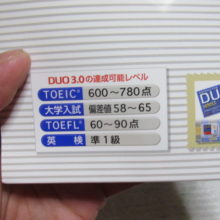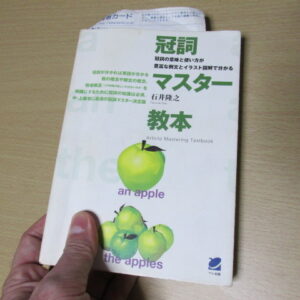このコンテンツではinjure、harm、hurt、damageの違いをまとめています。
人に使うと主に「名誉を傷つける」の意味になる語もあります。
英語類義語活用辞典、英語類義語使い分け辞典、ロングマン英々辞典を参考にしています。
- PR:Amazon
- 英語類義語活用辞典
↑”試し読み”とKindle版あります - 英語類義語使い分け辞典
英語類義語使い分け辞典の解説
きずつける
injure
特に事故で(人や動物)に肉体的な損傷を与える。
harm
通例故意に傷害・苦痛・苦しみ・損失を与える。
hurt
肉体または感情を傷つける。
damage, impair
(通例物)の価値・品質などを損なう(後者は格式ばった語)
wound
武器・凶器で傷つける。
mar
(幸福・美などを)損なう。
spoil
(物)の価値・効用などを損なってだいなしにする。
ロングマン英々辞典の解説
injure
1 to cause physical harm to(a person or animal), esp. in an accident; hurt seriously
Two people were killed and seven were injured, some of them seriously, when the car hit the bus.
2 to damage
His reputation will be badly injured by these vicious rumours.
harm n
damage or wrong
His film was a complete failure, and this did his reputation a lot of harm.
harm v
to cause harm to; hurt(esp. a person)
There was a fire in our street, but no one was harmed.

hurt
1 to cause physical pain and/or damage to(esp. a part of the body); INJURE
She hurt her leg when she fell.
2 to produce a feeling of pain(in)
Is that tight shoe hurting you/your foot?
3 to cause(a person)to suffer pain of the mind, esp. by unkindness; upset
I was deeply hurt by the way she ignored me.
4 to cause harm or difficulty
A lot of companies will be hurt by these new tax laws.
damage n
the process of spoiling the condition or quality of something and the harm or loss that results
The flood caused serious damage to the crops.
v to cause damage to:
The building was severely damaged by the explosion.
英語類義語活用辞典の解説
injure、harm、hurt、damage はいずれも相手を傷つける、または害を与える場合に使われます。
これは物理的、精神的いずれにも使えますが、ダメージを与える焦点に違いがあり、使い方を間違えると違和感を与えることになります。
injure は傷を負わせることであり、文字通り wound であったり、名誉など無形のものを傷つける場合もあります。injureは主にダメージを受けた側の人が使います。
He injured a shoulder in a football game.
(彼はフットボールで肩を傷めた)
He acts as though he was(were)the injured party when he is the one who inflicted a severe damage to his friend’s reputation.
(彼は友人の名誉を損ねておきながら、あたかも自分が被害者であるかのように振る舞っている)
harm は「害する」という総称的な観念に焦点を当てた言葉です。
harmful は「有害」、harmless は「無害」であり、よく知られたイディオムに in harm’s way(危険な立場)があります。
He was in harm’s way for a while but he is now out of harm’s way.
(彼はしばらく危険な立場にいたが、いまはそうではない)
out of harm’s wayはout of harm’s reach としても同義です。
One can cause a lot of harm to oneself and others by indulging in careless talk.
(軽はずみな発言は自分自身にも、他の人にも大変な迷惑をもたらす)
hurt が傷つく対象は主として感情であり、「それで何の差支えもない」という慣習的な用法があります。
It won’t hurt us if we give him a chance.
(彼にチャンスを与えても、我々は損しないので構わない)
It won’t hurt you if you smile a bit.
(もう少し愛想よくしても損するわけじゃないでしょうに)
hurt が物事に使われる場合は damage(損害)と同じ意味になります。
Japan’s export gets hurt with the increased appreciation of the yen.
(円高は日本の輸出産業に打撃を与える)
damage を人に使うのは主として名誉を傷つけられたケースです。
She sued a gossip magazine for damage.
(彼女はゴシップ誌を名誉棄損で訴えた)
人間以外に用いると、物品の損傷や機能の低下などを表します。
The race riots in the U.S. West Coast of the ’60s caused untold damage to the local storekeepers.
(1960年代に米国西海岸で起きた人種暴動は地元の商店主に大きな損失を与えた)
His eyes were severely damaged by strain under bad light.
(暗い場所での酷使により、彼の目はひどく弱った)


















